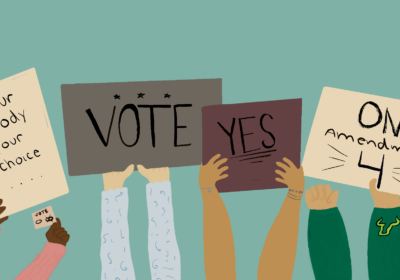Controversial film and protests both go too far
Worldwide protests have erupted in response to the anti-Islam film Innocence of Muslims. Responses have ranged from peaceful to extreme violence, with some leading to deaths of both civilians and diplomats.
It is important to condemn these violent protests in the Middle East and elsewhere around the world. Indeed, the peaceful protests leading to the success of the revolutions in the Middle East should serve as an example that violence is not the most effective method to voice a sense of discomfort.
But the film itself should not warrant the kind of outrage it has spurred.
The inaneness of it can be seen on YouTube a 13-minute trailer supposedly for the upcoming full-length film. It consists of a handful of unskilled actors against a projected desert screen, coupled with references with absolutely no historical accuracies. The trailer has no goal except attempting to insult Islam and its prophet. It is impossible for any human to watch the trailer to come out with a higher knowledge about the history of Islam, regardless if the film was against the religion or not.
In short, the film, if made, will be a direct insult to the film industry.
Politicians are already using the protests to their advantage. Former Gov. Mitt Romney used the attack to tread on President Barack Obama before the upcoming presidential elections. After U.S. Ambassador Christopher Stevens was killed in Benghazi, Libya, Romney immediately seized the opportunity to criticize the Obama administration for not condemning the attacks enough and instead sympathized with Muslims in those nations.
But these extremist protesters should not be confused with the groups, primarily youth, who propagated successful revolutions in the Middle East and North Africa. These youth, who helped change the governments of Egypt, Tunisia and Libya, are the same youth who are against the killings in Benghazi and who oppose al-Qaida. According to the Pew Research Center, the majority of people in these nations oppose al-Qaida 73 percent in Egypt and only a small number view the organization favorably.
Surely freedom of speech should be practiced as a fundamental right anywhere in the world. But very rarely do we speak of the responsibility that comes with this freedom the responsibility to respect and remain considerate toward the sacredness of symbols and figures of other faiths and cultures. The directors and producers of this disgusting film have done well to tread on the most sacred figure of the Islamic faith.
The reactions around the world have done nothing but to draw more attention to something that is receiving more fame than it actually deserves as a film. Protesting the film would imply that it insults the prophet of Islam. Instead, it merely insults the film industry and the knowledge of those who created it.
Nader Hasan is a senior majoring in international affairs and religious studies.






